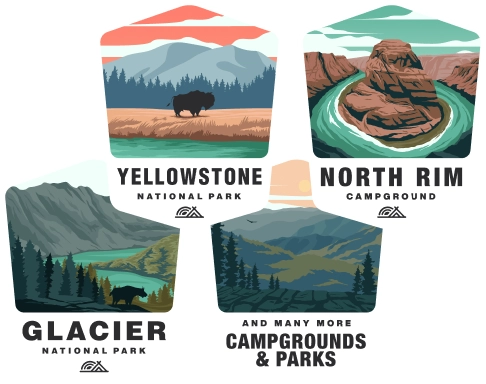Camping at Center Hill Lake Primitive Camping Areas
Overview of Center Hill Lake Primitive Camping Areas
Center Hill Lake is a reservoir located in the state of Tennessee, created by the U.S. Army Corps of Engineers by damming the Caney Fork River in 1948. The lake itself is a popular spot for outdoor activities, including boating, fishing, and swimming. For those who enjoy camping, Center Hill Lake offers primitive camping areas that provide a more rustic and natural camping experience.
Location and Access
The primitive camping areas around Center Hill Lake are scattered along the shoreline and are usually accessed by boat. Some sites may be accessible by hiking trails or rough dirt roads, which require vehicles appropriate for uneven terrain.
Camping Guidelines
To ensure a safe and enjoyable experience for all visitors, there are important guidelines to follow:
Reservations and Fees
- Generally, primitive camping areas on Center Hill Lake are on a first-come, first-served basis.
- No fees are charged for primitive camping, but there may be limits on the number of days you can stay in one spot.
Permits
- In some cases, a camping permit may be required for overnight stays. Be sure to check with the local ranger district or park management before setting up camp.
Campsite Selection
- Camp only in designated areas or where signs indicate camping is allowed.
- Choose a site at least 200 feet away from water sources to protect water quality and minimize the impact on the shoreline.
Campfires
- Campfires may be allowed in designated fire rings if they are provided.
- Always adhere to any local fire guidelines or bans, as conditions can change quickly affecting the safety of having a fire.
- Collect only dead and downed wood for fires, or bring in your own firewood. Do not cut live trees or vegetation.
Leave No Trace
- Pack out all trash and leave the site cleaner than you found it.
- Follow Leave No Trace principles to minimize your impact on the environment.
Sanitation
- There are no restrooms in primitive camping areas. Bury human waste in a small hole 6-8 inches deep and at least 200 feet away from water, trails, and campsites.
- Pack out all toilet paper and hygiene products.
Wildlife
- Be aware of local wildlife and follow proper food storage guidelines to avoid attracting animals to your campsite.
- Never feed wild animals as it can be dangerous and harmful to their health.
Safety Considerations
Water Safety
- If you are camping near the water, wear a life jacket when boating or participating in water activities.
- Be aware of water levels which can rise unexpectedly due to dam operations upstream.
Weather
- Monitor weather conditions closely and be prepared for sudden changes.
- Have a safety plan in case of severe weather, such as high winds or lightning.
Health Precautions
- Bring a first-aid kit appropriate for the length of your stay and the size of your group.
- Know the signs of heat exhaustion, hypothermia, and other common outdoor-related health concerns.
Conclusion
Camping at the primitive sites around Center Hill Lake offers a unique outdoor experience, connecting you closely with nature. By following the guidelines and being prepared, you can ensure a memorable and responsible camping trip. Always check the latest information and conditions from the local park authority or the U.S. Corps of Engineers office before heading out.
